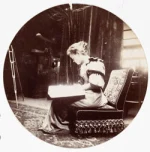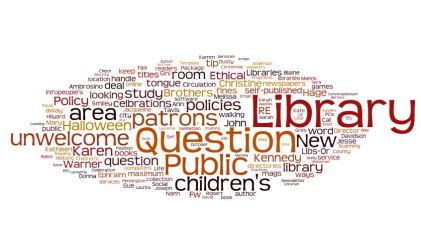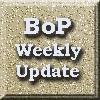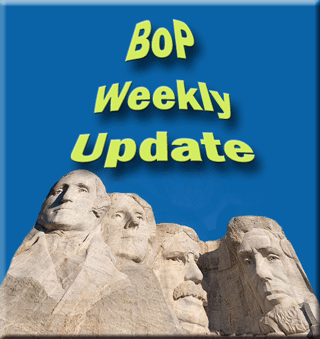
Update May 19, 2011: Amazon announced that they are now selling more Kindle books than print books – 5% more – after dropping the price on the Kindle with advertising to $114.
Update April 20, 2011: Amazon announced they will be introducing a Kindle Program for Libraries later this year. This is significant news for the Library market and quite a game-changer. How will this affect the Overdrive market and the future purchase of hand-held e-book readers by libraries?
According to MediaPost.com Kindles represent 59% of e-readers shipped. So, if Overdrive is able to deliver as represented, this would mean 59% more potential e-reader patrons for Libraries that have e-book collections. Is making the most popular e-reader compatible with 11,000 library collections a positive thing for Libraries? Is making the devices interactive with the books positive for patrons? I think it is.
It is also potentially *great* for Kindle sales, Kindle book sales, Kindle book authors/publishers (70% royalities in US/UK) and Overdrive. The marketplace responded very positively to Amazon’s April 20th news release: http://www.google.com/finance?client=ob&q=NASDAQ:AMZN
Since Overdrive, Inc. is not publicly traded, it is hard to tell what immediate impact this has on the value of their company. But, given Amazon’s extraordinary success in customer satisfaction and their huge IT infrastructure, it stands to reason that the partnership would serve to enhance Library customer satisfaction with Overdrive too.

 Scary new road for Librarians
Scary new road for Librarians
Many of the Publib and Web4Lib conversations in 2010 centered on the effects of handheld media devices and applications in the world of libraries. The mainstream use of handheld media and the proliferation of machines that effectively recreate the reading experience of traditional books struck home for many librarians.
The codex certainly has many iterations, but after 500 years it did become standardized. With the exception of oversized and miniature books, most are close in size and operate essentially the same way. Librarians are comfortable with and comforted by collections of nice squared chunks of paper, cloth and leather neatly arranged on metal and wooden shelves. We were comfortable with card catalogs and eventually became comfortable with online catalogs. The online catalogs certainly did not have the same feel, the same look, the same smell as the old catalogs, but eventually they took hold as standard library features. Yet, unlike most traditional library catalogs, the intellectual authority over catalog software was outsourced to vendors. Librarians essentially gave up ownership of their catalogs, while providing broader access to more collections for their patrons through shared resources, databases and inter-library loan.
Slowly, a new path of accessibility began to blend in with the online catalogs. Digital books and digital audio became popular. Massive digitization and storage of public domain works projects were undertaken. Computer memory, speed, and storage increased while size, cost and energy needs decreased. Smart-phones and wireless networking became common. 3G and 4G networks proliferated. The convergence of networks, digitization, and hardware improvements meant book contents requiring hundreds of metal and wooden shelves are now available on devices weighing under a pound. And, those same devices have access to enormous digitized collections at far greater speed than even the most efficient traditional library services.
The youthful progression of 18-20 somethings forced Academic Librarians to become early adopters of hand-held media technology. Academic in-house computing power and talent lent themselves to solving problems of accommodating information delivery in the manner prefered by their gen x and gen y patrons . Public Librarians trended towards becoming late adopters. Many had no budget for electronic book collection development. Others, inhibited by vendor controlled delivery and electronic book access looked for ways around what appeared to be a system without standards. Some of the better funded public libraries have been able to develop electronic book collections, purchase electronic readers, and effectively respond to the demand by their patrons for this new information medium.
 Rise of the Machines
Rise of the Machines
2010 Christmas season sales in the US accompanied a big price break and increase in quality for hand-held electronic book readers. Nook, from Barnes & Noble, dropped its price to $149 and started offering a color screen. Kindle , from Amazon dropped in price to $139 and the Kindle became their top-selling item. The Sony ebook Reader was more affordable at $129. The marketplace moved from early adopters willing to pay several hundreds of dollars to the mass market with prices under $200 for advanced electronic book readers. Many librarians saw the trend and adapted to increased demand for e-books by their patrons. Many other librarians worked on denying the viability of e-books and holding on to the comfortable idea that the codex was simply better. But with massive profits driving the suppliers, each complaint about the viability of e-books is being addressed with solutions. And, the suppliers of e-readers attempt to make their devices behave as well or better than the traditional book:
Librarians and readers complained that reading from a computer screen was not as enjoyable as reading a book. Nook now advertises its “just-like-paper screen” and Kindle and Sony employ the same electronic technology from E-Ink . The electronic paper screens do not have the flicker of CRTs and glare of LCD panels. They are not back-lit such as LCD / LED screens – so text does not disappear in direct sunlight. Some reports link use of LCD and LED screens to insomnia , but the same effect is not apparent with the E-Ink electronic paper available from new electronic book readers.
Librarians and readers complained that sharing of downloaded materials was not possible because the license was for one device, one reader. Nook and Kindle have begun to address sharing and are now offering options. Market demand and profit will determine future sharing options. With such an insignificant production / advertising / distribution cost compared to traditional books – electronic books potentially have more leeway in terms of maintaining profitability for publishers and authors.
Nook offers social media options and two million titles. Kindle offers text to speech, advanced pdf reader, and Whispersync links your personal library and the progress of your reading with other devices you might own. Sony offers Readerstore, Googlebooks, and excellent cross-platform compatibility. Each device is moving towards becoming more and more multifunctional.
Librarians complained about the lack of standardization, instructions and cross-platform compatibility. Most of those problems were derived from vendors who had failed to create adequate instructions and quickly address the needs of libraries as fluid and dynamic information marketplaces. Conversely, with each complaint about electronic book readers, the focus of the manufacturers and suppliers is to improve. The complaints are heard as an opportunity to improve and move a step ahead of their competition. Are libraries competing?
 As if Kindle and Nook and Sony did not create a big enough impact, Google’s Android operating system along with Apple’s iPad / iPhone and PC applications paved the way for multi-use handheld devices. 3G access became widespread and smartphones are able to use Nook, Sony and Kindle applications to increase personal library access. Android equipped devices can quickly download a Kindle or Nook application. Every smartphone can now become an electronic book reader and a mobile library.
As if Kindle and Nook and Sony did not create a big enough impact, Google’s Android operating system along with Apple’s iPad / iPhone and PC applications paved the way for multi-use handheld devices. 3G access became widespread and smartphones are able to use Nook, Sony and Kindle applications to increase personal library access. Android equipped devices can quickly download a Kindle or Nook application. Every smartphone can now become an electronic book reader and a mobile library.
The electronic book is here and expanding and evolving without librarians a gatekeepers. However, there is encouraging news from many public libraries showing patron excitement over electronic book collections. Some are offering to purchase copies for libraries. Multiple holds for electronic books demonstrate that sharing is still one of the most effective tool of libraries. But, if libraries are going to rely solely of vendors for delivery, vendors must improve and address libraries as valued and dynamic information markets. One of the most promising tools available to librarians who wish to take the intellectual leap of not being entirely vendor dependent is Calibre ebook management. This “free and open source e-book library management application” offers many features of value to librarians and their patrons.
Librarians must address competition in the information market in order to remain viable. With massive budget cuts to all public services looming, the road ahead for libraries is unknown. However, it looks like the Tin Man will be traveling with us.
Rise of the Machines

Please join us on BestofPublib Facebook
The Publib Archives
The Publib archives from the Webjunction listserve are available here: Archives Please note: HTML is stripped out of archives. Compose in plaintext or richtext.

Filed under: Administration, Book selection, Budgeting, Cataloging, Centralized processing, Collection development, Electronic books, Intellectual freedom, Interlibrary loan, Library Marketing, Library Profession, Mobile, Multimedia, On-line, Outreach, PACs, Public Services, Research, Technical Services, Technology, Terminology, Virtual, Web librarianship | Tagged: Amazon, Android, e-book, e-books, ebook, ebook readers, eBooks, Kindle, Nook, Overdrive, Sony | 7 Comments »
 The shutdown entered its third week. On October 15th, DC city government opened as usual, and paychecks for city employees went out as scheduled. Frustration about congressional inaction continued. How long would this go?
The shutdown entered its third week. On October 15th, DC city government opened as usual, and paychecks for city employees went out as scheduled. Frustration about congressional inaction continued. How long would this go?![]()
![]()







 Scary new road for Librarians
Scary new road for Librarians
 As if Kindle and Nook and Sony did not create a big enough impact, Google’s
As if Kindle and Nook and Sony did not create a big enough impact, Google’s 
 This edition of Best of Publib covers the week of February 22nd through February 28th 2010. This week included questions about advertising and accountability, use and implementation of ebook readers, and our new poll on charging library fees to support other government departments. Some of the topics we will be reviewing include:
This edition of Best of Publib covers the week of February 22nd through February 28th 2010. This week included questions about advertising and accountability, use and implementation of ebook readers, and our new poll on charging library fees to support other government departments. Some of the topics we will be reviewing include: 



